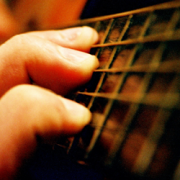The importance of culturally relevant musical forms in worship
Last month Tim wrote a great article on worship entitled “Toddler Worship.” His observations are, I believe, truly important for maturing believers. It is certain that we should not aim at the lowest common denominator when leading our churches, therefore it is foolish to craft a worship service to meet the immature in their immaturity and cater to it in such a way that they never grow.
Early in my pastoral ministry, as a youth pastor, I sought to set the bar high for the 50 or so Jr. High students I ministered to. The level of teaching they received during my 4 year tenure, was likely over their heads. Or at least the adults visiting my services told me so. I was actually not surprised that many of them grasped far more of what was taught than most adults gave them credit for. I set this purely as a qualifier for what I am about to say, especially since I do not really disagree with that Tim wrote. I’m not one to water things down for the sake of attracting people.
Several years ago, while preaching and teaching 8 to 10 hours a week for an extended period, I came down with a virus, which resulted in the loss of my voice. After healing from the illness I found that my ability to speak had drastically been affected. For several months I preached with what felt like an incredibly weak voice. By the end of Sunday services I’d be very near losing my voice. I also found that I was completely unable to engage in musical worship prior to preaching; in some ways this was a bit of an existential crises.
I’m almost sorry to admit it [now]; to that point worship to me had been inextricably linked to music. Not being able to sing caused me to rethink the paradigm of worship I’d come to know within modern evangelicalism. In my rethinking process I’ve come to recognize a number of important truths.
1. Music is not worship, but God created music to be the fastest onramp to genuine worship in spirit and truth.
2. God created music to stir our emotions, which informs us that worship should be emotional.
Genuine worship does not need music, but is greatly aided by it. One can just as easily enter into emotionally engaging worship by meditating upon God and His word while standing before the Grand Canyon, Bridalveil Falls, or merely considering His greatness.
* The affect of music upon our emotions can be for good or for bad. God did not dictate that music would only affect us in a positive or happy way. Music played at a faster tempo with major chords generally stirs happy emotions, whereas music played at a slower tempo with minors evokes sad emotions. Dissonance in music stirs negative anxiety and fear (maybe Fusco can produce some dissonant fear conjuring worship for us).
3. Worship music that only engages the emotions is severely lacking and creates worshipers of worship as a means to emotional euphoria (ie emotionalism).
This point has been regularly reconfirmed for me over the last 10 years in working with youth and college students.
4. The theologically correct lyrics of emotionally stirring worship songs will engage the mind with the emotions to produce “heart worship.”
The engagement of the mind is essential. The emotions conjured up by the greatness of the Grand Canyon causes one to be in wonder (or worship) of the awesomeness of the Colorado River, whereas another is brought into honorable worship by seeing the same sight, while rehearsing God’s word in their mind or setting their affections upon Him.
5. Theologically correct lyrics attached to emotionally unengaging music shortchanges genuine worship.
6. Since worship music should effect us at an emotional level, style of music is important and varies from culture to culture, and across generational lines.
This time last year we were blessed to offer The Perspectives on the World Christian Movement course at CCEsco. One of our instructors, Ron Binder, brought this issue of style in musical worship home for me.
Ron is a Wycliffe missionary and an expert in Ethnomusicology. during a portion of his lecture he spoke on the importance of culturally relevant musical forms in worship, and explained that just as individuals have a “heart language,” they also have a “heart music.” This “heart music” is the style or musical form that will most engage their emotions and draw them into “heart worship.”
If this is true, and I believe it is, then we ought to honestly consider this as we are seeking to disciple our fellowships in worship, especially when we consider that the Father is seeking those that will worship Him in spirit and truth. So, I do agree with Tim that we should not cater to people’s immaturity, and that we should do our best to separate the music from the worship. But at the same time I continue to find that I need to think through the realities of style in worship far more than I ever did before.
7. Worship in spirit and truth is responsive, thus we cannot expect a person to “experience” heart worship immediately at the open of a corporate worship service.
8. A musical worship service, or corporate worship time should [therefore] be progressive (psalms, hymns, spiritual songs…). It [the worship service] should lead people into worship.
Since my introduction to Calvary Chapel at age 11, my primary experience of a musical worship has been that which is engaged in for approximately 30 minutes prior to the sermon, and/or what is practiced at many of our believers meetings, camps and retreats. These are, in our movement, commonly call “Afterglows.”
In my (purely personal, non-scientific) observation of these meetings, there seems [at times] to be very little intentionality in our worship and something of a “storm the throne room” approach. In the last several years I’ve heard many a worship leader and/or pastor lament the fact that their people are “not worshiping,” which is generally gauged by the lack of participation (i.e. singing) by the gathered assembly. In considering this complaint, I’ve developed a theory that a worship service that draws the worshipers into heart worship should progress from psalms to hymns, which results in spiritual songs.
• Psalms are – generally speaking – scripture put to music. John Calvin believed singing anything other than the Psalms was inappropriate for Christian worship and unworthy of God. I don’t know if I’d go that far. But, such singing of the scriptures sets our minds upon God’s word and aids us in taking God’s word into our hearts, as music is a tremendously powerful mnemonic device.
• Hymns are doctrinal and theological in nature; they exalt the attributes of God’s character and nature; they give intellectual and theological expression to our faith. Martin Luther said, “Let me write the hymns of a Church, and I care not who may write its creeds and volumes of theology — I will determine its faith.”
• Spiritual Songs are adorations, supplications, petitions, confessions, thanksgivings, etc… They are spiritually inspired from man to God or God to man and tend to be prophetic in nature and spontaneous. Such songs are the overflow of our heart in devotion to God.
I believe that the lack of participation many observe in worship today is related to the fact that much of our modern worship tends to be “spiritual song” dominant. If one does not properly, and progressively, lead the body into worship, they will likely not engage in worship as their heart has not been properly prepared to sing devotional confessions of praise or petition (e.g. “You [God] are the air I breath,” “You are all I want, you are all I need,” “Lord my one request, my only aim, Lord reign in me again.”).
I am, however, encouraged by many of the new hymns being developed by individuals like Keith Getty and groups such as Sovereign Grace and Indelible Grace Music.
Ultimately worship is God’s idea. He created us to worship and is seeking such who will worship Him. John Piper is right, “Missions exist because worship doesn’t.” God is worthy of our worship and our greatest experiences of pleasurable joy are rooted in our worship of Him. He inhabits the praises of His people and in His presence is fullness of joy. These truths have challenged me over the last several years to more seriously consider the theology of worship. Perhaps it’s a good challenge for the church as a whole?












